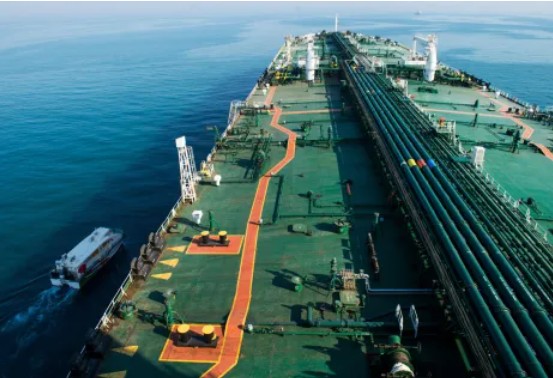Syria Exports Crude Oil for First Time in 14 Years

Historic Shipment from Tartus Signals Postwar Economic Revival
In a development being described as historic, Syria has exported 600,000 barrels of heavy crude oil, marking its first official oil shipment in over 14 years. The shipment, which departed from the port of Tartus, represents a critical milestone in Syria’s gradual re-emergence on the global energy stage following more than a decade of civil war, sanctions, and economic collapse.
The move follows a recent easing of U.S. sanctions, allowing limited oil trade and reconstruction related transactions under specific humanitarian and development exemptions. Syrian authorities say the shipment is part of a broader strategy to revive the nation’s energy and infrastructure sectors, which were among the hardest hit during the war.
Oil Fields Reclaimed
Much of Syria’s oil infrastructure lies in the northeast territory that was under the control of Kurdish-led autonomous administrations during the conflict. While issues over minority rights and local governance remain unresolved, the central government has gradually regained operational control over key fields in coordination with allied forces.
According to sources within the Ministry of Petroleum and Mineral Resources, the oil was extracted from fields in Deir ez-Zor and Hasakah, refined locally, and shipped via internal pipelines to Tartus.
$800 Million DP World Deal Boosts Port Operations
In parallel with the crude oil export, Syria has signed an $800 million agreement with DP World, the Dubai based global port operator. The deal grants DP World management rights over a multi-purpose terminal at Tartus Port, aimed at expanding trade capacity and attracting investment to the region.
Officials say the agreement will modernize port infrastructure, improve logistics, and support Syria’s bid to reintegrate into regional and international trade networks.
A Turning Point?
Prior to the civil war, oil accounted for over 25% of Syria’s export revenues. The outbreak of conflict in 2011, followed by foreign sanctions and the fragmentation of national territory, effectively halted exports and crippled the sector. The last recorded oil shipment from Syria took place in 2010.
This week’s export signals a potential turning point in Syria’s long and difficult path to postwar recovery. However, challenges remain. Beyond political reconciliation and minority inclusion, Syria must rebuild its energy infrastructure, secure long-term investment, and navigate ongoing regional tensions particularly with Israel, Turkey, and U.S. forces still active in some parts of the country.
Economic analysts caution that while the export is symbolically significant, sustained progress will depend on international recognition, long-term security, and transparent economic governance.

jiliokcc https://www.jiliokccw.com
https://askoff.ru
ceo reports https://otvetnow.ru newsletter templates free publisher